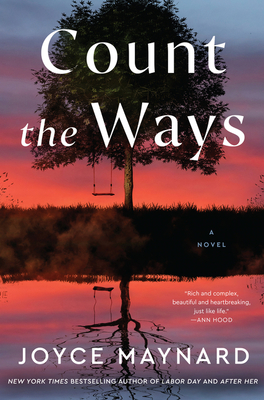Back in October, I wrote about a book called Trespass by Valerie Martin.
I read it, and highly recommend it. It’s an intense, sad, upsetting book, but well worth it. It’s also one of those books that is so engaging that I found myself irritated at anyone who interrupted me while I was reading it, including the poor woman giving me a pedicure who only wanted to know what shape I wanted for my toes.
The story opens as Chloe, a middle-aged book illustrator living outside New York City, is meeting her son Toby’s Croatian girlfriend Salome for the first time. She immediately dislikes Salome, believing that she is trying to trap her son into a relationship, marriage, maybe a green card. At the same time, Chloe is also dealing with a roving poacher on her land, who hunts rabbits and fires rifle shots that leave her deeply unsettled.
As the book goes on, the stories and characters widen and become more complex. Martin introduces Toby’s historian father, Salome’s immigrant father and brother, and ultimately, her presumed dead mother Jelena, who somehow survived the horror of the Serbian-Croatian genocide.
Trespass is aptly named. Xenophobia runs strongly through the book, manifesting itself in emotions ranging from discomfort and suspicion to hatred. The book opens as the U.S. invades Iraq –ironically, I finished it on the war’s fifth anniversary — compounding the theme of violence and invasion. Yet the trespasses are personal and emotional as well – such as Salome’s unwelcome entry into Chloe’s family, the poacher on the land, Salome’s angry, violent brother.
I received a review copy of this book, and tucked in with it was a article from Bookpage. In it, Martin is quoted: “I was conscious early on that the book was about both the fear and the attraction of foreignness, which I think Americans feel particularly…. The notion of people who live in the light, and those who come from the dark is so important to that book, and I liked the idea that Americans live in realms of light and live in fear of the intrusion of the realms of darkness.”
The story of Jelena’s horrific survival of the genocide is haunting. And what I found most compelling from Martin’s story was the conclusion that sometimes experiences like living through a war or losing a parent or child so indelibly mark us that we never recover, never return to the people we were before. The tragedy of war is its inescapable legacy of damage.
No, this isn’t a light book. But it is very readable and compelling and I had trouble putting it down. Martin’s gift as a writer was summed up perfectly by Booklist: “Martin is a coolly dispassionate storyteller with a narrative voice that is at once inviting and disquieting.” I completely agree – her style is spare, which ultimately draws the reader in rather than alienating.
I have some issues with the ending – as I often do – but I don’t want to give anything away so I will keep those thoughts to myself.
Highly recommended.











About Me
I have been blogging about books here at Everyday I Write the Book since 2006. I love to read, and I love to talk about books and what other people are reading.